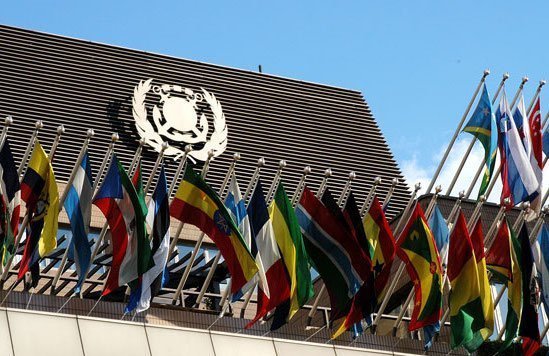IMO votes against shipping decarbonisation fund
International Maritime Organisation (IMO) member states meeting virtually for shipping emission discussions this week have rejected a research and development fund that could have sped up the industry’s transition to zero-carbon technologies, says the International Chamber of Shipping (ICS).
 PHOTO: IMO headquarters in London, UK. Getty Images
PHOTO: IMO headquarters in London, UK. Getty Images
ICS has been championing this R&D fund since it joined other shipping associations in proposing it to the IMO in 2019. An International Maritime Research and Development Board (IMRD) would be set up and funded by a $2/mt levy on bunker fuel paid by ships around the world.
They estimate that this could have generated $5 billion to finance R&D for zero-carbon technologies and fuels and boost uptake of these by lowering investment risk. The proposal also had backing from major shipping nations like Greece, Denmark, Japan and Singapore.
“By refusing to take forward the shipping industry’s proposed research and development fund, the IMO has wasted its opportunity to kick start a rapid transition to zero-carbon technologies which will be vital if we are to decarbonise completely by 2050,” ICS secretary general Guy Platten says.
He says the IMO is short-sighted in killing the R&D fund, and that some IMO members have misinterpreted the fund as a market-based measure with lacking ambition.
But it was never the intension to replace other, potentially more effective market-based measures to curb the industry’s emissions with an R&D fund on its own, Platten argues. An R&D fund would have come in addition to other proposed market-based measures such as a global carbon levy or a carbon emission trading system.
These market-based measures are more complex to sketch out, debate and agree on at the IMO level, and are likely years from being adopted and rolled out.
“If governments had shown the political will, the separate R&D fund could have been up and running next year, raising billions of dollars from industry at no cost to governments,” says Platten.
Platten says the shipping industry has shown much more willingness to go for net zero carbon emissions by 2050 than IMO member states have.
Dry bulk shipping association INTERCARGO has been a proponent of the R&D fund and urged governments to adopt it this week.
It also backs an additional global carbon levy on vessel emissions, saying that unless these measures are taken “it will be premature to revise intermediate targets for 2030 or indeed for any subsequent year beyond.”





